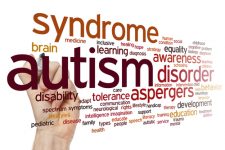It’s Time to End Violence Against People with Disability

Violence against people with disability is endemic in Australia. It’s an epidemic that until recently has remained hidden. The abuse and neglect of the disabled takes many forms from violence to sexual abuse to the denial of their basic rights.
In Australia, people with disability experience violence at far higher rates than the rest of the community. Ninety percent of women with an intellectual disability suffer sexual assault during their lives. And children with a disability are three times more likely to be subjected to abuse.
People with disability can have their legal capacity taken away from them. They can be detained against their will for long periods. And any violence that is reported in the institutions and residential settings where they live is often treated as a workplace issue, rather than a crime.
A 2015 Senate inquiry into violence and abuse against people with disability found this mistreatment begins with the “de-valuing” of these people. The inquiry outlined this attitude is common amongst disability workers, service organisations, and even in government safeguard systems.
International concern
The United Nations Committee on Economic, Social and Cultural Rights has called on the Australian government to implement all of the recommendations of the Senate Inquiry, including the establishment of a royal commission into violence and abuse against people with disabilities.
In its fifth periodic report on Australia, released on June 29, the committee said that it was especially concerned about violence and abuse against people “with intellectual disabilities and women with disabilities placed in institutions or residences.”
The report also states that the committee was “concerned at the lack of effectiveness of oversight and complaint mechanisms in alternative care settings.”
The committee is a body of 18 experts charged with monitoring the implementation of the International Covenant on Economic, Social and Cultural Rights by nations that are a party to the international treaty. Australia ratified the agreement on December 18 1972.
The government’s response to the inquiry
Along with recommending a royal commission, the 2015 Violence, Abuse and Neglect Against People with Disability in Institutional and Residential Settings Senate Inquiry made 29 other recommendations.
These included the establishment of a national disability complaints mechanism, national workforce and workplace regulations, improving access to justice for people with disability, and that each state and territory implement a disability justice plan.
The Turnbull government’s response to the Senate inquiry is to establish the National Disability Insurance Scheme (NDIS) Quality and Safeguards Commission. The national body will respond to complaints of violence, regulate service providers and screen workers.
Legislation was passed through parliament on June 21 enabling the commission to commence next year, and the 2017 federal budget has provided $209 million in funding for its first year of operation.
The dire need for a royal commission
Intellectual Disability Rights Service (IDRS) executive officer Janene Cootes said the new safeguard organisation is important, but “it’s being set up using the same tools that are already” in place, and she questions whether it will have any real effect in stopping the violence and abuse.
“A lot of people with a disability are dependent on carers… particularly on carers in group homes, or people who come to provide care to them in their own homes,” Ms Cootes told Sydney Criminal Lawyers®. “So there’s a lot of vulnerability that comes with that level of dependence.”
The UN committee’s call for a royal commission is important, Ms Cootes said, as such an investigation would lead to a better understanding of “the root causes of the violence and abuse,” and “what some of the solutions might be.”
Ms Cootes is not the only advocate for people with disability who believes this is the best approach. On June 8, 163 civil society organisations issued a statement to the prime minister calling for the royal commission.
The statement outlined that measures like the safeguard commission would fall short of addressing the systemic violence, as it will only provide protection to those who directly access the NDIS. And this equates to less than 10 percent of people with disability in Australia.
Opposition leader Bill Shorten threw his weight behind the royal commission in May. However, the Turnbull government flat out refuses the proposal.
Navigating the criminal justice system
The IDRS is a community legal centre and a disability advocacy service. The service provides legal assistance to people with disability, as well as a support person service for those going through the criminal justice system.
This support service is vital for people with intellectual disabilities when reporting a crime, as police can struggle with communication. Ms Cootes explained that officers can have doubts about a “person’s ability to be a good witness,” which can lead to investigations not being followed up.
The support people are very important at both “the police level and at the court level,” Ms Cootes added. And the support person is present for the whole process, which often “takes a couple of years for serious offences.”
The threat to advocacy services
However, under the NSW state government’s current plan the future of advocacy services, like the IDRS, are uncertain. “The government is not continuing funding for advocacy, because they’ve basically said that the NDIS is enough,” Ms Cootes explained.
This will mean that frontline support services that encourage people with disability who are victims of violence and abuse to seek justice will not be available anymore, which will only lead to further silence surrounding the plight of these people.
The Senate inquiry specified the importance of advocacy services. It was outlined in the report that all levels of government should “acknowledge the vital role that formal and informal advocacy play in addressing violence, abuse and neglect of people with disability.”
And in doing so, the inquiry specifically recommended “states and territories not to reduce advocacy funding with the rollout of the NDIS.”
“Advocacy services in NSW won’t receive the funding that they’ve been receiving until now, and that will start in June 2018,” Ms Cootes concluded. Disability funding will then be transferred to the national body. “But the NDIS doesn’t fund advocacy services.”







